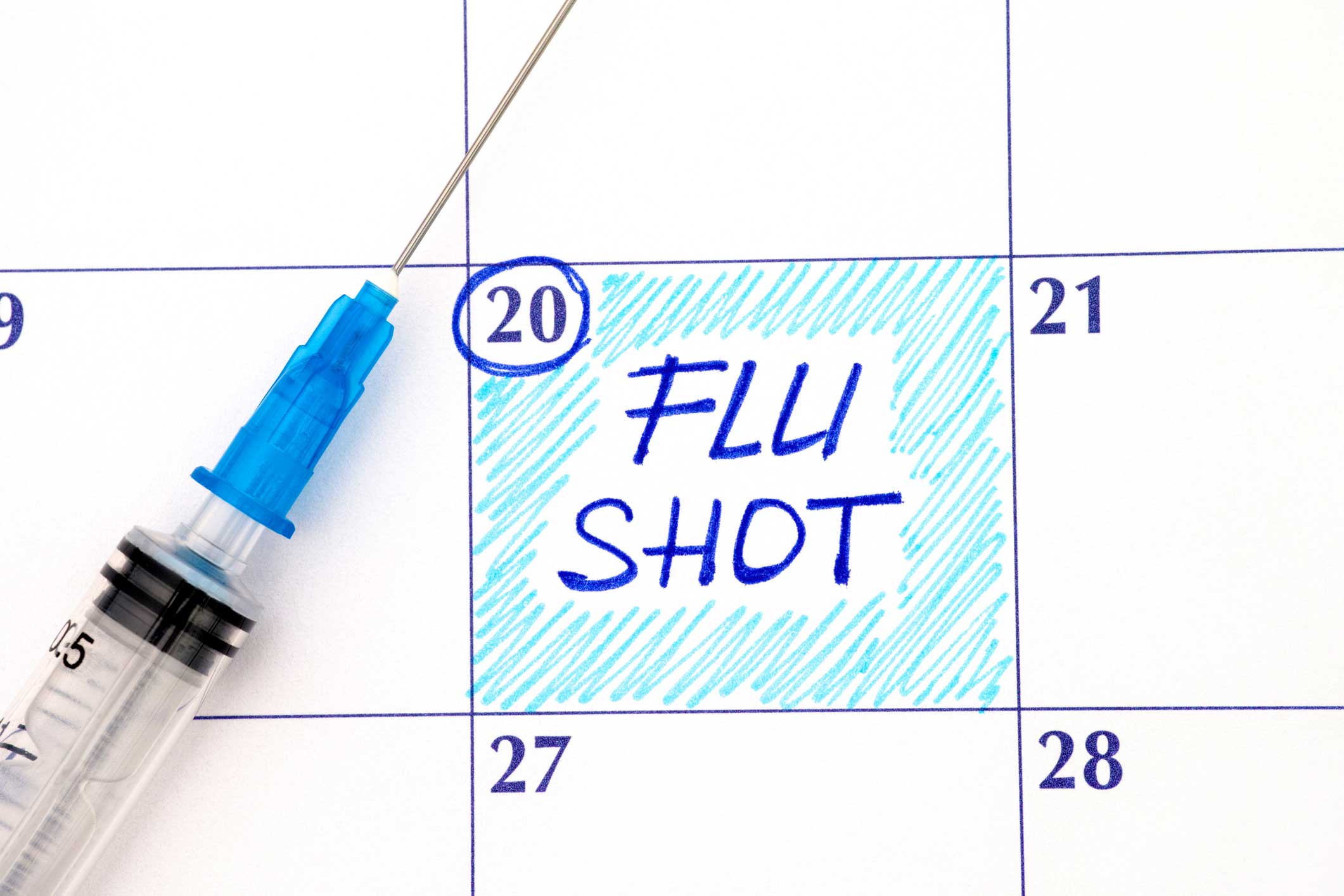Fall means foliage and, unfortunately, flu. This year, the double-whammy of the seasonal respiratory ailment and a predicted second wave of COVID-19 has infectious disease experts urging Americans to rally against quarantine fatigue, maintain safe practices and get a flu shot.
According to Dr. Anthony Fauci, director of the National Institute of Allergies and Infectious Diseases, people need to “hunker down and get through this fall and winter because it’s not going to be easy.”
Both seasonal flu and COVID-19 are respiratory diseases, although the latter is more contagious, and both can be lethal for vulnerable people like the elderly and those with compromised immune systems. Hartford HealthCare is now testing patients for both diseases to properly diagnose and treat them.
“A healthy body does better with (the flu) disease process, and we’ve seen this. We’ve had the opportunity to look at a number of data points now we can see that,” said Keith Grant, HHC’s senior system director of infection prevention.
Because the flu shot takes two to three weeks to be effective, he said it’s time to plan to get one.
“We start to see the beginnings of influenza in October,” he said, “so I would advise, especially people who have any level of vulnerability, to get vaccinated as soon as possible. It’s available in the community. There are statistics that show these are good times to take it and I would.”
West Hartford Mayor Shari Cantor gets a flu shot as part of “It’s good for you CT — Get your flu shot!” initiative. Click here.
At the same time, it’s important that people not get complacent about other measures that help prevent COVID-19 prevention, including proper mask-wearing and social distancing, according to Dr. Ajay Kumar, chief clinical officer at HHC. He praised the performance of Connecticut residents in the first wave, and said he believes continued diligence will help prevent the second wave from being worse.
“I’m confident if we continue the social discipline we have had so far, we will not reach the level of pandemic we experienced in March and April,” Dr. Kumar said. “If we continue to have social-distancing policies in place, if we have mask and hygiene measures in place, we will come through this pandemic in the fall.”
One thing that does concern him, however, is what’s known as “quarantine fatigue.” People are tired of staying home, and they miss interacting with others and group activities. The sense that COVID-19 has lessened as a threat might also cause people to abandon precautions, he said.
“The fickleness of our social behaviors is always a challenge,” Dr. Kumar said. “If we have some lack of discipline, my [predictions] will be very wrong.”
Experts use a marathon term to describe the feeling about the pandemic at this point, saying it’s like many Americans have “hit the wall.” Crisis mode, which gripped the world in the early weeks and months of the pandemic, is difficult to maintain. When the body begins to become desensitized to danger because the level of anxiety has been high for an extended period of time, caution is often abandoned.
At HHC, however, Dr. Kumar said extensive planning for the fall and winter means the system should be prepared for a second wave of COVID-19.
“What I’m confident about at this time is that whatever the change that is going to occur in fall and winter, whatever the increase, it is not going to impede our ability to provide care,” Kumar said. “We will have adequate capacity within the hospital systems to manage that without disrupting our workflow.”
HHC Pharmacy Director Eric Arlia said the system has also stockpiled medications used to treat patients with COVID-19. This includes remdesivir, which was in short supply at the beginning of the pandemic.
As the foliage changes, keep these tips in mind for maintaining a healthy sense of caution about the potential dangers of COVID-19:
- Weigh risk vs. benefit when making decisions. Is the short-term excitement over attending a crowded house party worth the potential risk of contracting COVID-19 from an infected guest? Is it worth carrying it home to your children or aging relatives?
- Focus on the facts. It can be easy to see a hotspot crop up elsewhere in the country and think you’re safe to leave your mask at home or mingle in a crowd. The fact is, until there’s a vaccine or herd immunity in the United States, the threat exists everywhere.
- Watch others’ behavior. Your health depends on the behavior of everyone you come into contact with, so if your friend is being reckless, steer clear for a while.
- Keep it simple. Wash your hands. Disinfect frequently touched surfaces. Wear a face covering in public.
Hartford HealthCare offers flu clinics across the state. Click here for more information.



